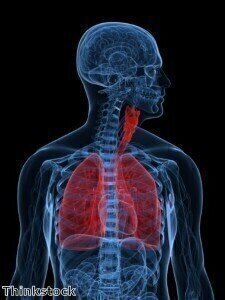Bioanalytical
Biochemistry experts assess impact of air quality on athletes
Jul 27 2012
Biochemistry experts along with environmentalists and health officials are looking to assess the impact of poor air quality on athletes, as London prepares to welcome the Olympic Games to the country.
Weather conditions have heated up in Britain, which has proved to be a cause for concern among certain experts, who believe the high concentrations of pollutants in the capital could affect the athletes’ performance.
Air pollution has been linked with adverse health effects in London since the 1952 smog event, which was responsible for 4,000 excess deaths. Today, London remains as one of the most polluted capitals in Europe, with a recent report showing that over 85 per cent of England’s worst air quality areas are in the capital.
The effects of such pollution levels on athletes has been of great interest to biochemists and environmentalists for some time, and the case was brought into the limelight after British athlete Steve Ovett collapsed in the 800 metre final in the 1984 Los Angeles Olympics with respiratory problems. He cited air pollution as a major contributing factor to his episode of exercise-induced asthma.
Research has shown that particulate matter (PM), nitrogen and sulphur oxides, the ammonium ion, organic aerosols, and ozone can adversely affect the health of competing athletes. In the UK, exposure to these particles was found to be responsible for an average life loss from birth of 6 months.
However, from a biochemist perspective, these pollutants could be having a significant effect on the athlete themselves. Health problems usually come in the shape of cardiovascular complaints, decreased performance, asthma, decreased lung function, and pulmonary hypertension.
Athletes are especially susceptible to health effects from air pollution because there is an increased volume of air inhaled. More importantly, most of this air is breathed through the mouth, which lacks the filter systems of the nose which removes pollution before it can reach the lungs. Additionally, the increased air flow during exercise means that pollutants travel deeper into the lung.
Posted by Ben Evans
Events
Jan 20 2025 Amsterdam, Netherlands
Feb 03 2025 Dubai, UAE
Feb 05 2025 Guangzhou, China
Mar 01 2025 Boston, MA, USA
Mar 04 2025 Berlin, Germany












